China says it wants to play a major role in global economic governance. But will political and security issues push it off course?
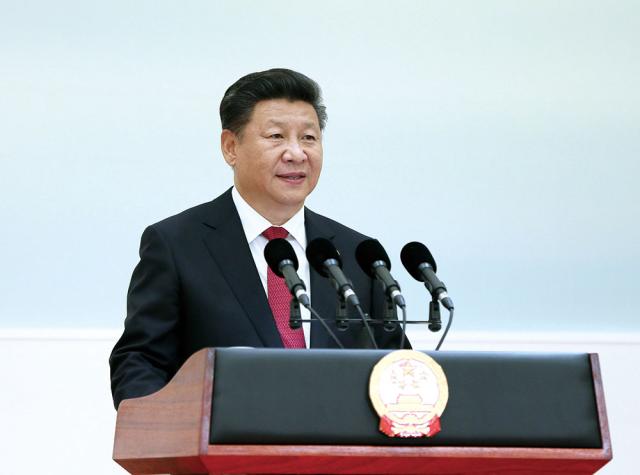
Chinese President Xi Jinping addresses a banquet at the G20 summit, Hangzhou, Zhejiang Province, September 4, 2016 / Photo by Xinhua
As the leaders of the world’s biggest economies met at the G20 summit in Hangzhou, Zhejiang Province, from September 4-5, all eyes were on China. Beijing had promised new leadership to steer the world through growing economic difficulties.
But after the final communiqué, dubbed the “Hangzhou Consensus,” offered a technical agenda on structural reform, trade, investment and sustainable development, reactions were mixed. Some pundits and analysts criticized it for failing to offer immediate, concrete steps to push global growth back on course. Others, however, lauded the summit for outlining long-term goals that could lead to a more inclusive global economic order and more sustainable development. Either way, China’s G20 presidency was the highlight of this year’s summit, which analysts said offered insights into China’s shifting role in global governance and the challenges it faces.
From G7/8 to G20
Launched in 2008, the G20 summit was born out of the global financial crisis and the then G8’s inability to deal with it. (The G8 is now the G7, after Russia’s suspension in 2014.) Since the G8 countries’ share of the world’s GDP had steadily declined as new economies emerged, it was considered necessary to form a fresh leaders’ forum where established and emerging powers could meet to help steer the global economy.
Although G20 momentum stalled after the historical performance at the 2009 London summit, when members agreed on measures worth US$1.1 trillion to tackle the global financial crisis, it still remains a more inclusive multilateral platform to provide strategic direction for the world economy.
China has launched various global initiatives, including the One Belt, One Road initiative and the Asian Infrastructure Investment Bank (AIIB), and has been increasingly explicit in voicing its aspirations to push forward reforms in global economic governance. As a result, China’s presidency of the 2016 G20 summit has attracted a huge amount of attention.
China has maintained a growth rate of over 6 percent despite its economic slowdown, which contrasts with continued stagnation in major Western countries, and the fading dynamism of other emerging economies such as Russia, Brazil and South Africa. This has also reinforced China’s central position within the G20.
However, since the birth of the G20, China’s role in global governance has been intertwined with the increasing strategic rivalry between China and the US.
The eight years between the first G20 summit held in Washington in 2008 and this year’s Hangzhou G20 coincides with the administration of US President Barack Obama under which the US launched the “Pivot to Asia” strategy. China has also become far more assertive in its foreign and defense policy. In the past couple of years, tensions regarding security issues between the two countries, especially over territorial issues in the South China Sea, have been on the rise.
This strategic rivalry is reflected in the “G7-vs-G20” narrative put forth by strategists from both countries. While the US is suspicious of China’s efforts to assume the role of a global leader within the G20, China is also concerned about the US’s strategic intentions around the G7, especially when the latter has extended its scope to political and security issues.
As a result, when the G7 leaders released a statement after their May summit in Japan that addressed the territorial disputes between China and other countries in the South China and East China seas, China issued strong protests.
On May 26, the same day that the G7 summit commenced, China’s Foreign Ministry held a press conference to release a briefing outlining “10 major results” that China aimed to achieve during the G20 summit to be held three months later.
While Chinese officials have refrained from spelling out the message behind the scheduling, Chinese strategists are more straightforward. “The G7 advanced economies have now become an ideological group, which have abandoned their original target of discussing global economic management. Thus the G7’s guiding role of global economic management should be taken by the G20,” Zhang Jingwei, a researcher from the Charhar Institute, argued in a commentary published on news site China.org.cn a few days after the Foreign Ministry’s press conference.
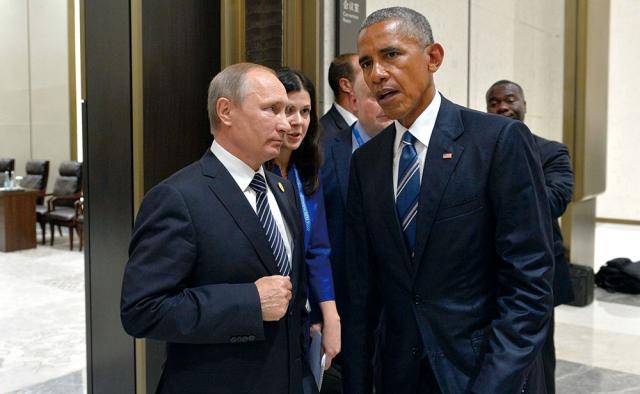
US President Barack Obama and his Russian counterpart, Vladimir Putin talk about Syria and Ukraine on the sidelines of the 11th G20 summit, Hangzhou, Zhejiang Province, September 5, 2016 / Photo by IC
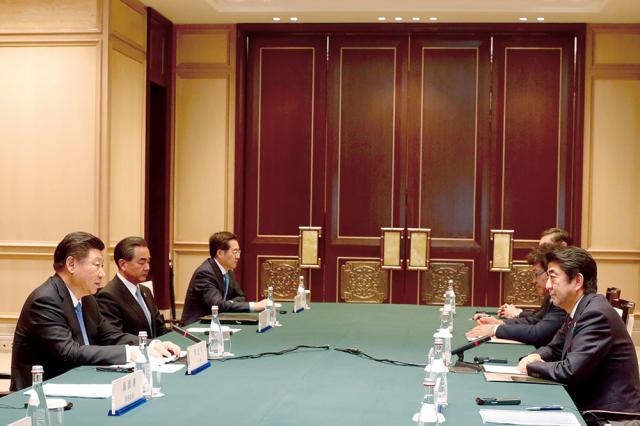
Chinese President Xi Jinping meets with Prime Minister Shinzo Abe of Japan during the G20 summit, Hangzhou, Zhejiang Province, September 5, 2016 / Photo by CNS
Long-term Aims Bearing this in mind, a major focus of China in promoting the G20 as a more inclusive and more effective platform to handle the global economy has been to separate economics from politics, with Chinese diplomats repeatedly stressing that the G20 is a platform to discuss economic issues, not political ones.
China also brought inclusiveness into focus by inviting a record number of leaders from developing countries, including Chad (represented by African Union Chairperson Idriss Deby), Egypt, Kazakhstan, Laos (the 2016 ASEAN chair), and Senegal (represented by New Partnership for Africa’s Development Chairperson Macky Sall). By hosting a more inclusive summit, China tried to present itself as a bridge between developed countries, emerging economies and the developing world.
As well as broadening diversity, China’s focus during the Hangzhou summit was on long-term goals of platform establishment, consensus building and agenda setting, rather than short-term plans that can lead to immediate results.
In an interview with NewsChina, China’s Finance Minister Lou Jiwei said that China’s primary concern this summit was the G20’s “institutional design.” It aimed to transform the G20 from “a crisis -solving mechanism” into an institutionalized governance platform and to “shift its focus from short-term policies to moderately long-term structural reform.”
“With a blueprint for innovative growth, along with initiatives for new industrialization, this structural reform can safeguard the world’s moderately long-term sustainable development,” said Lou, referring to various programs that are included in the final communiqué of the summit.
Therefore, while pundits who focus on concrete plans may consider the achievements listed in the final communiqué too abstract to be meaningful, China believes them to be important measures needed to institutionalize and incorporate the G20 and China’s initiatives into the existing global governance regime. For example, the outcomes listed in the final communiqué include a G20 action plan on the UN’s 2030 Agenda for Sustainable Development and a number of new forums, alliances and mechanisms, such as the Global Infrastructure Connectivity Alliance and G20 Agricultural Entrepreneurs Forum.
As Finance Minister Lou told NewsChina, “The summit has achieved landmark results in the institutional design [of the G20].” He added that “With the presidency of the G20, China has endeavored to highlight the group’s status as a major platform for global governance and by enriching and improving the rules of global governance, pushing it to become more just and reasonable.”
China also made gains on the sidelines of the summit. Just days ahead of the G20 summit, the World Bank announced it would issue US$700 million worth of bonds denominated in 500 million Special Drawing Rights units in China, which analysts said would boost the Chinese yuan’s global profile.
Prior to the summit, Canada also officially applied to join the China-led AIIB, making it the first North American country to do so. It is estimated that the number of AIIB member states will increase from 57 in early 2016 to over 90 by the end of the year.
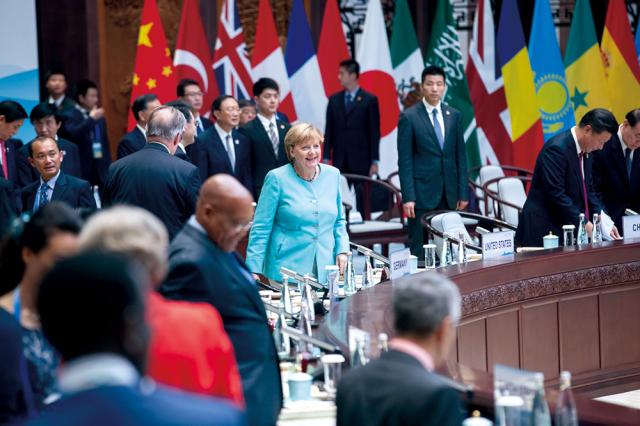
The 11th G20 summit kicks off in Hangzhou, Zhejiang Province, September 4, 2016 / Photo by CFP
Geopolitical Challenges While China may have given a boost to its international status at the Hangzhou summit, China’s future role in global governance will continue to be challenged by its geopolitical rivalry with the US and Washington’s regional allies.
Despite China’s efforts, the G20 summit agenda was persistently waylaid by political issues. The Syria negotiations between the US and Russia attracted considerable attention from the international media, and China’s own ongoing disputes with neighbors such as South Korea and Japan remained a focal point of the summit.
In a bilateral meeting held on September 5 between Chinese President Xi Jinping and Japanese Prime Minister Shinzo Abe on the sidelines of the G20, their first one-to-one talk in 17 months, Xi said Japan should “exercise caution in its words and deeds,” while Abe responded that the South China Sea disputes should be solved “according to international law,” referring to the July ruling over the UNCLOS case brought by the Philippines over maritime issues, which China dismissed as invalid.
Meanwhile, China and South Korea have been locked in a dispute regarding Seoul’s plan to deploy an anti-missile system to shield against North Korean attacks, a system which China considers a threat to its own security. The dispute grew even more heated as North Korea launched several missiles during the G20 summit. In the bilateral meeting between Xi and South Korean President Park Geun-hye held on the sidelines of the summit, the two leaders reiterated their own positions.
And while the US chose not to press China over South China Sea issues during the G20 summit, Obama put the issue back on the agenda at the ASEAN summit held on September 8, three days after he left Hangzhou. And after North Korea conducted its fifth nuclear test on September 9, security issues again dominated the global discussion.
In the past, China’s main approach to managing its disagreements with the US has been to focus on economic and trade cooperation, which has long been dubbed the “ballast” of their bilateral relationship. China has argued that the two should put aside their disputes on political and security issues and instead look at the “bigger picture” of their bond.
However, as anti-globalization and protectionist sentiments are on the rise both in the US and other Western countries, the disputes between China and the US have already taken on an economic tinge, which could erode the cornerstone of bilateral cooperation between the two countries.
While China was able to put aside security and political disputes during the G20, it will find it more and more difficult to separate economics from politics in the long term.
Fortunately, the two countries have found a new area where they can find common ground. In a bilateral meeting on the G20 sidelines, the world’s two largest emitters of greenhouse gases reached an agreement to announce that they will formally ratify the Paris agreement on climate change. The move is not only a significant step towards battling global warming, it also sends a symbolic message that the two powers can work together on global issues, which is often a precondition for major breakthroughs in international cooperation. Environmental issues may be able to supplement economic ones in providing a solid bedrock for future Sino-US cooperation.
In the wake of the G20 summit, one major issue that will continue to attract attention is the dispute over overcapacity in the steel industry. In recent months, the EU and the US have blamed Chinese overcapacity for the difficulties of the steel sector in other countries. During the G20 summit, leaders agreed to create a “global forum on excess steel capacity,”and then report back to the G20 in 2017.”
This will be a major test for the G20’s ability to handle economic disputes. If the proposal is put into action, the forum would be the first concrete and collective action taken to address major trade disputes under the G20’s aegis. It’s a sign that hosting a successful summit is just another step on a long road toward China’s eventual goal of taking a major role in global leadership.
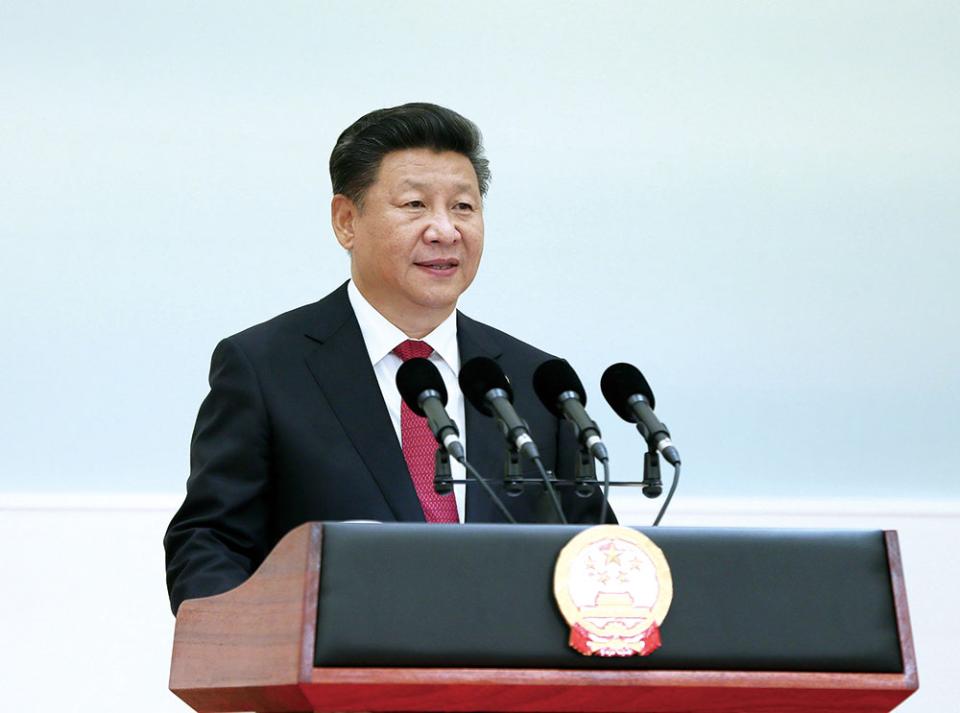
 Old Version
Old Version



